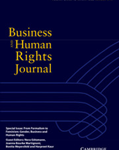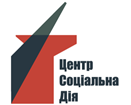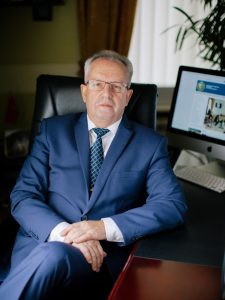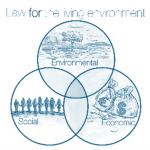SUSTAINABILITY IN TRANSITION: CORPORATE RESPECT FOR SOLIDARITY
Concept
Kharkiv Forum Panel Discussion
5th of October 2022
Time: 9.30 – 17.00 Kyiv time (8.30 – 16.00 CET)
English and Ukrainian; simultaneous translation will be provided
Hosted by:
|
Law Group | Wageningen University and Research, the Netherlands
Website: www.wur.nl |
International Lab on Business and Human Rights | Yaroslav Mudryi National Law University, Ukraine
Website: www.nlu.edu.ua |
The project is co-financed by the Governments of Czechia, Hungary, Poland and Slovakia through Visegrad Grants from International Visegrad Fund. The mission of the fund is to advance ideas for sustainable regional cooperation in Central Europe.
In cooperation with:
 |
 |
 |
 |
 |
 |
 |
|
REBALANCE Project within Horizon Europe Framework Programme |
 |
 |
How can we transform our economy and society to maintain quality of life in a sustainable way? How will people living in relatively poorer socio-economic conditions be able to catch up with and/or be included in the transitions that we deem necessary to sustain our economy and our environment? How, if at all, should we incorporate our legal and ethical responsibility for past, present and future resource use vis-à-vis future generations and the rest of the world?[1]
These most important questions of our time need ambitious and well-balanced answers. This historical moment provides unprecedented opportunities, in this respect, given a series of recent developments:
- Regulatory developments: the emergence of mandatory human rights and environmental due diligence legislations in several EU MSs and at the EU level (e.g. the EU proposed Corporate Sustainability Reporting Directive + Corporate Sustainability Due Diligence);
- Judicial developments: a series of ground breaking judicial decisions[2] and petitions[3] that have contributed to clarifying the legal duties of businesses in relation to human rights and climate change;
- Policy developments: the Paris Agreement, the 2030 Agenda for Sustainable Development and the EU Green Deal bring to the forefront the role of private actors in contributing to the sustainability transitions;
- Societal developments: the COVID-19 pandemic and the war of aggression on Ukraine, which have re-ignited the debate on the role and duties of businesses as societal actors in times of crisis.
These developments pose special challenges for new democracies. A hard reality for them is that the current model of (economic) development is not rights-based and business models are still not human rights oriented. It leaves the profit-maximization mantra of modern shareholder value-oriented corporations untouched and, in fact, extends it as a guiding ideal to tackle a variety of social and environmental issues, providing an opportunity for governments to privatize public problem-solving and to retreat from essential public domains. There is a need to reorient the role and purpose of corporations in society. Merging business and human rights requires moving from the state-centric outlook on human rights and the corporate-centric view on corporate social responsibility, to a rightsholder-centered understanding of BHR[4] based on the intrinsic normative force of human rights. This challenge requires a level of interdisciplinary dialogue.
On 23 of June 2022, the European Council has decided to grant the status of candidate country to Ukraine, a country in which there is a full-scale war. This unprecedented decision shows a new dimension of the concept of solidarity and opens a new page for the implementation of the Sustainability Agenda which, in particular, forces us to rethink the role of business conduct.
In this context, for the Panel Discussion, we propose to focus on the concept of solidarity and what it means for the European legal order and what is its impact on the legal systems of a candidate countries. We are looking to elucidate the role of solidarity for achieving the Sustainable Development Goals with special attention to situation of instability, in particular the impact of the Russian full scale invasion of Ukraine. We don’t pretend to uncover all the dimensions of solidarity’s impact on the sustainability agenda. Instead, we focus on the role of responsible business conduct and discuss the concept of corporate respect for solidarity from a legal perspective. Special attention will be paid to the role of corporate solidarity in times of war and post-war rebuilding, and in the light of challenges caused by forced migration. We are going also to discuss instruments to build corporate solidarity based on business and human rights approach.
Non-exhaustive list of questions for the Panel discussion is following:
- Solidarity as a fundamental value and principle of the European legal order. Solidarity and Human Rights;
- Essentiality of solidarity for the Sustainability Agenda in turbulent times;
- Solidarity beyond the EU and its application to candidate countries;
- The role of non-state actors in implementing the Sustainability Agenda through the prism of solidarity;
- Corporate respect for solidarity in times of war and in the post-war period;
- Human rights obligations of private providers of essential goods and services;
- Forced migration in times of war and the role of private actors to minimize the risks of forced labour;
- Building of corporate solidarity based on business and human rights approach.
The Panel will include:
- General discussion on Solidarity, Human Rights and Corporate Actors (9.30-13.00 Kyiv time, 8.30-12.00 CET);
- Webinar on “Forced migration in times of the war and the role of private actors to minimize the risks of forced labour” (14.00 – 15.30 Kyiv time, 13.00 – 14.30 CET);
- Webinar on “Corporate solidarity based on business and human rights approach instruments” (16.00 – 17.00 Kyiv time, 15.00 – 16.00 CET).
[1] See Josephine van Zeben, The European Green Deal: The future of apolycentric Europe?, Eur Law J.2020;26:300–318.
[2] E.g. the Vedanta and the Shell case.
[3] E.g. the ‘Carbon Majors’ petition in the Philippines; Sacchi et al.
[4] Wettstein, Florian. 2022. Business and Human Rights: Ethical, Legal, and Managerial Perspectives. Cambridge: Cambridge University Press.
SPEAKERS

Judge Robert Spano was elected to the European Court of Human Rights in 2013 with respect to Iceland and is currently the President of the Court. Before taking up his judicial office he served as Parliamentary Ombudsman of Iceland from 2009-2010 and again in 2013. He served as Dean of the Faculty of Law, University […]

Prof.dr.mr. Josephine van Zeben, Professor and Chair of the LAW group at Wageningen University and Research (the Netherlands). She has also been a lecturer at the ETH Zürich – teaching Environmental Regulation: Law and Policy – since 2012. Before joining WUR, van Zeben was Fellow in Public and EU Law at Worcester College, University of Oxford […]

Prof. Dr. Markus Krajewski, University Professor at the University of Erlangen-Nürnberg, the Chair in Public Law and Public International Law. Prof. Krajewski is one of the programme directors of the MA in Human Rights and chairperson of the Interdisciplinary Research Centre for Human Rights Erlangen-Nürnberg (CHREN). He also chairs the Board of Trustees of the […]

Chief Executive Officer of the Institute for Human Rights and Business (IHRB) since its formation in 2009 under the leadership of Mary Robinson. John leads IHRB’s global strategy, fundraising, and outreach. John advises a number of governments, intergovernmental organisations, and businesses on human rights and wider issues of sustainability, development, and international affairs. His most […]

Doctor of Jur. Sciences (Dr. hab), Professor, Head of the Department of the European Union Law, Yaroslav Mudryi National Law University. Head of the Jean Monnet Chair “In-depth Study of EU Values and Law: Ukrainian Context”. Prof. Komarova for a long time explores judicial law of the European Union. She has more than 150 scientific […]

Coordinator of the Industrial Ecology and Sustainable Development Committee of the European Business Association (EBA). She has 9 years of experience in the field of Sustainability in the business environment: in 2013-2019, she managed projects on inclusion and diversity, as well as reducing CO2 emissions in Auchan Ukraine. Since 2020, she continues to promote the […]

Prof. Florian Wettstein, professor of business ethics and Director of the Institute for Business Ethics at the University of St. Gallen in Switzerland. Florian has published widely on topics at the intersection of corporate responsibility, business ethics, and business and human rights, and has been involved in numerous practical and policy initiatives and projects on […]

Associate Professor and Acting Chair Law Group, Wageningen University.

Prof. Jernej Letnar Cernic, Full Professor of Human Rights and Constitutional Law at the European Faculty of Law and the Faculty of Government and European Studies of the New University (Ljubljana/Kranj, Slovenia). He is also Visiting Professor of Law at the European University Viadrina in Frankfurt (Oder) in Germany and at the Riga Graduate School […]

Beata Faracik, Internationally recognized Human Rights & Business expert/lawyer with almost 20 years of professional experience. She is currently leading the Polish Institute for Human Rights and Business (PIHRB) an independent centre of expertise on Human Rights and Business, labour law and relations, social unrest and stakeholder engagement, of which is both co-founder and President of […]

Dr. Siniša Milatović, Expert on business and human rights, and he is currently serving as a Business and Human Rights Specialist with UNDP. He is responsible for developing global programming and providing expertise on business and human rights to colleagues and partners in Africa, the Middle East, Asia, Latin America, and Eastern Europe and Central […]

Dr. Olga Martin-Ortega, Professor of International Law at the School of Law and Criminology. She leads the Business, Human Rights and Environment Research Group and undertakes research on multinational enterprises and human rights, public procurement and human rights, post-conflict reconstruction and transitional justice. Before joining Greenwich, she was Senior Research Fellow at the Centre on […]

Dr. Chiara Macchi, Lecturer in Law at Wageningen University & Research. She joined the Law Group in 2019 as Marie Sklodowska-Curie Researcher with a project on Business and Human Rights in the policies of the European Union. She is an assistant editor of Transnational Environmental Law and co-chair of the Business and Human Rights working […]

Dr. Kateryna Buriakovska, PhD in Law (2015), Yaroslav Mudryi National Law University, Assistant Professor and expert in International Lab on Business and Human Rights. Since July 2022 is a visiting lecturer and researcher in Friedrich-Alexander University in Erlangen, Germany. She is focused on researching human rights in armed conflicts, transitional justice and international criminal law.
MODERATOR

MSCA4Ukraine Postdoc, Law Group, Wageningen University, Chair of the International BHR Lab at the Yaroslav Mudryi National Law University.
Fill form to finish the registration
Form is deprecated, please contact the webmaster to upgrade this form.
Thank you for registration!!
Dear Colleague,
Thank you for registering to attend the VIII-th Kharkiv International Legal Forum.
We look forward to your participation. An official invitation would soon be sent to your email. Any queries, please email to forum@nlu.edu.ua.
See you at VIII-th Kharkiv International Legal Forum on September 23-27, 2024!

Co-Chairman of Organizing Committee
Rector of Yaroslav Mudryi National Law University
Anatoly Hetman









